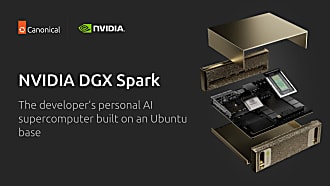Tom Haddon
on 15 November 2017
We recently landed a feature in Codetree that I’m pretty excited about. Codetree is a tool for collecting code from various locations and assembling it in a specific directory structure. It can be used in a standalone fashion, but is also tightly integrated with Mojo, which we use to deploy and manage Juju models.
To install Codetree, just run “sudo snap install codetree --classic“.
As an example, let’s say you want to get a subset of the latest OpenStack charms. You could do so by creating a file called openstack-charms with the following contents:
charms @ charms/cinder git+https://github.com/openstack/charm-cinder;revno=stable/17.08 charms/glance git+https://github.com/openstack/charm-glance;revno=stable/17.08 charms/hacluster git+https://github.com/openstack/charm-hacluster;revno=stable/17.08 charms/heat git+https://github.com/openstack/charm-heat;revno=stable/17.08 charms/keystone git+https://github.com/openstack/charm-keystone;revno=stable/17.08
You’d then run “codetree openstack-charms” and you’d have the charms assembled in a “charms” directory. So far so good.
But what happens three months from now when you want to upgrade the charms you’ve deployed to a newer version? Or two months from now if you come across a bug in the charms and are not sure exactly what version you deployed and when? Juju strips out any dotfiles and dot directories from charms it deploys, so you won’t be able to use git commands to query where the charms on disk in your deployed OpenStack came from.
This is where the new feature we’ve just added to Codetree comes in. Codetree will now inject a file called “codetree-collect-info.yaml” into any directory it downloads, and this file will then be queryable later to confirm what version you deployed. This can be done in situ on your deployed OpenStack instance. For example:
juju ssh keystone/0 “head -4 /var/lib/juju/agents/unit*/charm/codetree-collect-info.yaml” collect_date: '2017-11-01 14:32:55.815503' collect_url: git+https://github.com/openstack/charm-keystone;revno=91490b7daf7511a717f75f62b57fc3f97cc6d740 hashes: LICENSE: cfc7749b96f63bd31c3c42b5c471bf756814053e847c10f3eb003417bc523d30
Now you can easily see the specific revision the charm was collected from, when it was collected, and the hashes allow you to query if any of the files on disk have been changed.
Our next planned step from here is to add a “charm-report” phase to Mojo to allow us to query this information with one simple command.



